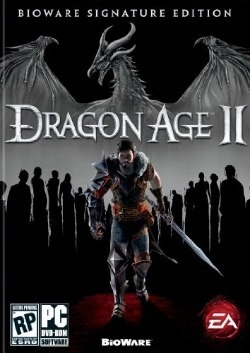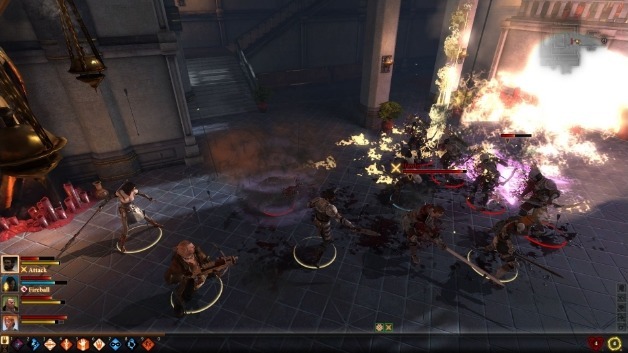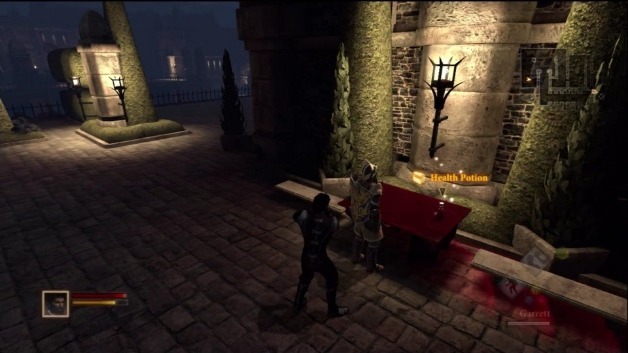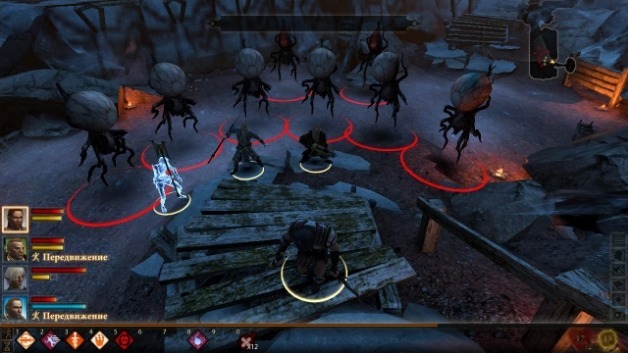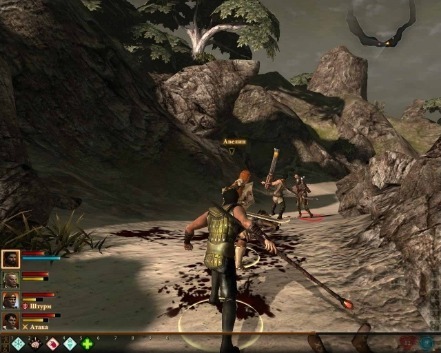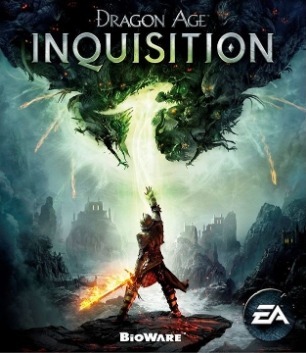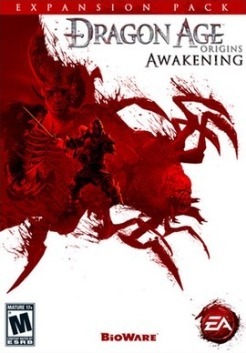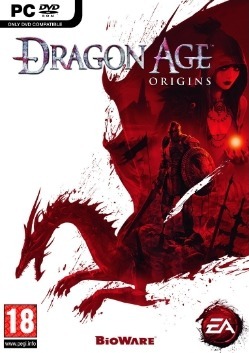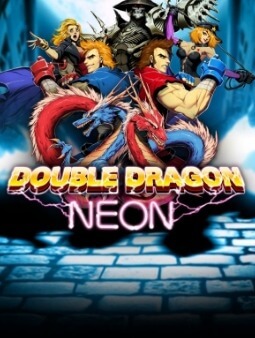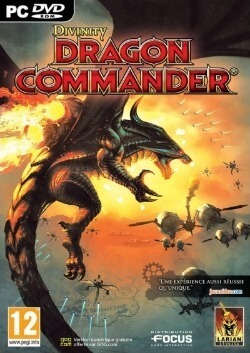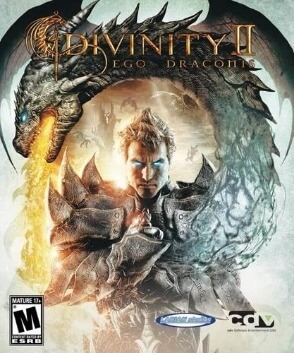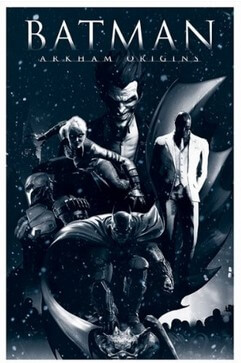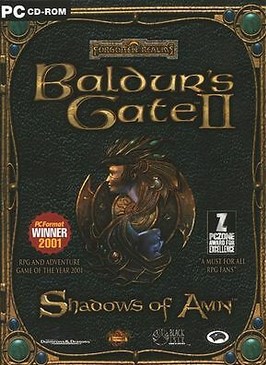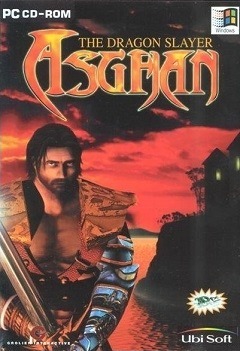Dragon Age II is an action role-playing game played from a third-person perspective. In the game, players control a human named Hawke, a refugee during the Fifth Blight, who eventually becomes the Champion of Kirkwall. Hawke's gender and appearance can be customized, and players need to select their class at the beginning of the game. There are three class types: a mage (who wields a magical staff to cast spells), a rogue (who wields a dagger or bow and arrow), or a warrior (who wields a melee weapon in both hands, or with a shield). Players can incorporate choices they made in Origins to the game by importing their saved game, or choosing a background at the starter menu, which bring modifications to the game's narrative.
During combat and exploration, players are accompanied by different companions, who can be recruited into Hawke's party. Hawke can only bring three companions with them, while others stay in different home bases in Kirkwall. Though players can directly control these companions and switch between them freely, they are usually controlled by artificial intelligence, which can be modified by players using the "Tactic" menu. For instance, players can customize a companion's stance to be aggressive, and set their behaviors like consuming health potions when they get injured. During battles, players may pause the game and issue commands to both Hawke and party members separately. Players can also move the camera freely in the PC version. However, commands cannot be queued, meaning that players can only issue a new command after the previous one is completed. In addition to basic attacks, players can utilize different talents. For instance, warriors can stun enemies with the "Tremor" ability while mages can unleash fireballs to burn enemies, though some talents drain the character's stamina or mana. Skills can be used to supplement each other to create combos, which further enhance combat efficiency. Defeated companions are automatically revived after all enemies are eliminated, but they will suffer from injuries.
The game features an inventory system that acts as an item storage. There are several types of items: weapons and armors, crafting recipes, runes, plot items and consumables. Players must micro-manage the inventory system. A player can only carry a certain amount of equipment, though extra inventory space can be purchased. In the game, players encounter different containers and loot, as well as merchants who sell different items. Some items give players perks that improve their statistics. Only Hawke can equip the weapons and armors found in the game's world. Companions' armors cannot be changed, but players can customize them with rings, amulets, and belts, and collect armor upgrades for them. Weapons can be enchanted using runes which introduce new properties to the weapon on which they are inscribed. Upon discovering crafting recipes, Hawke can contact craftsmen to create new items like potions, poisons, bombs, and runes. In the game, players may also collect different junk items that can be sold to merchants.
As players complete quests and kill enemies, players earn experience points. After earning enough experience points, they will level up. In addition to having more health, stamina and mana, players can also unlock new talents and upgrade the character's attributes. These are divided into six categories: Strength, Dexterity, Magic, Cunning, Willpower and Constitution. A skill tree is present for players to unlock talents in a non-linear manner. Unlocked talents can be upgraded further to enhance their effectiveness. On reaching a certain level, Hawke can specialize in a sub-class. Each companion has talents that are exclusive to them, and can be upgraded as players progress. Skills such as crafting and lockpicking are unlocked automatically when players' attributes are high enough.
Outside combat, players engage in dialogue, asking or answering questions. A dialogue tree offers several dialogue options for players to select. There are three main personality types: diplomatic, humorous, or aggressive. The most chosen option becomes Hawke's core personality type. Hawke can also tell lies, bribe or extort money from others, and flirt with non-playable characters. In the game, players will make many decisions that lead to different consequences for both Hawke's party and the game's world. The approval system from Origins has been adjusted into a friendship/rivalry system. Depending on players' decisions and dialogue choices, a companion will either recognize Hawke as a friend or a rival. A companion who consistently agrees with Hawke's views considers them a friend, while a companion who consistently disagrees with Hawke forms a tense but respectful rivalry with them. Full friendship unlocks bonuses which generally benefit Hawke or the party, while full rivalry boosts combat ability for companions to help them outdo Hawke in competition. To improve the relationship with a companion, certain items can be gifted to them. Up to five companions are romance options for Hawke regardless of friendship and rivalry.
